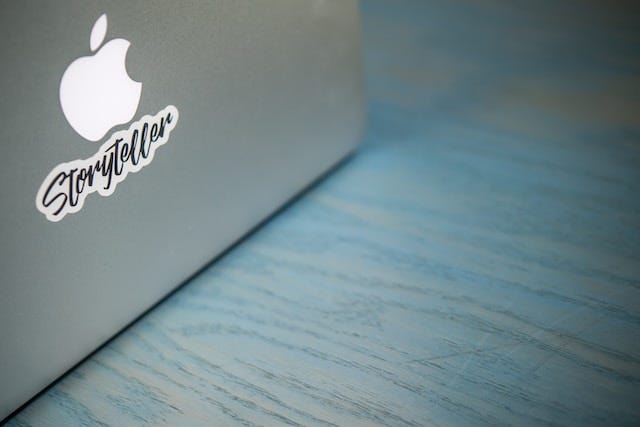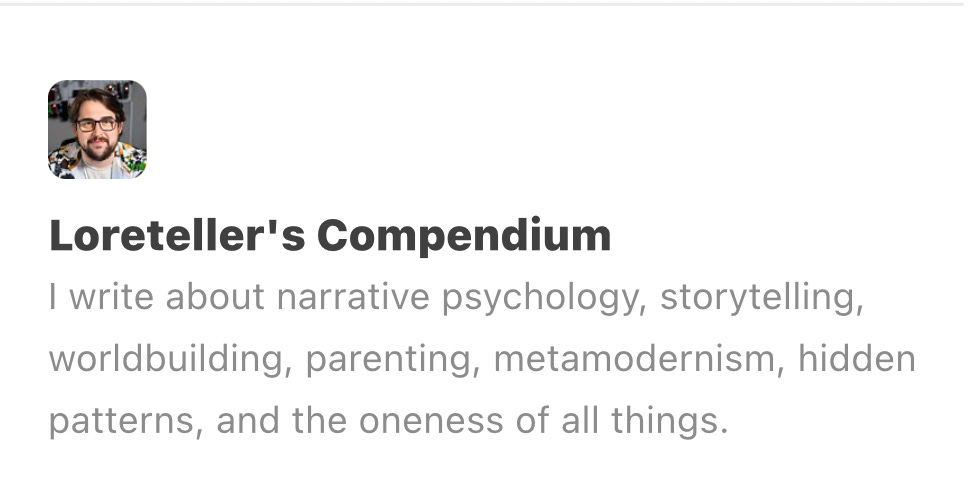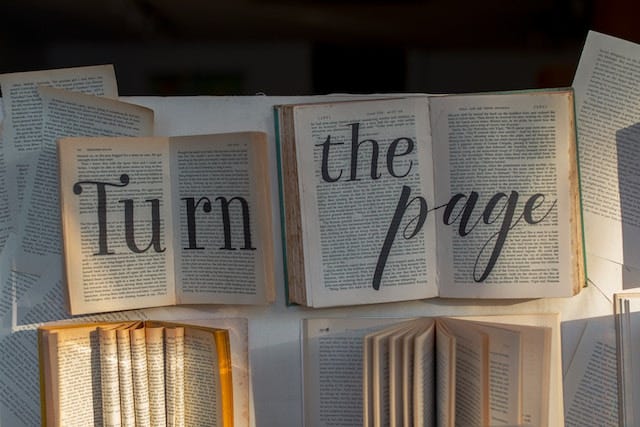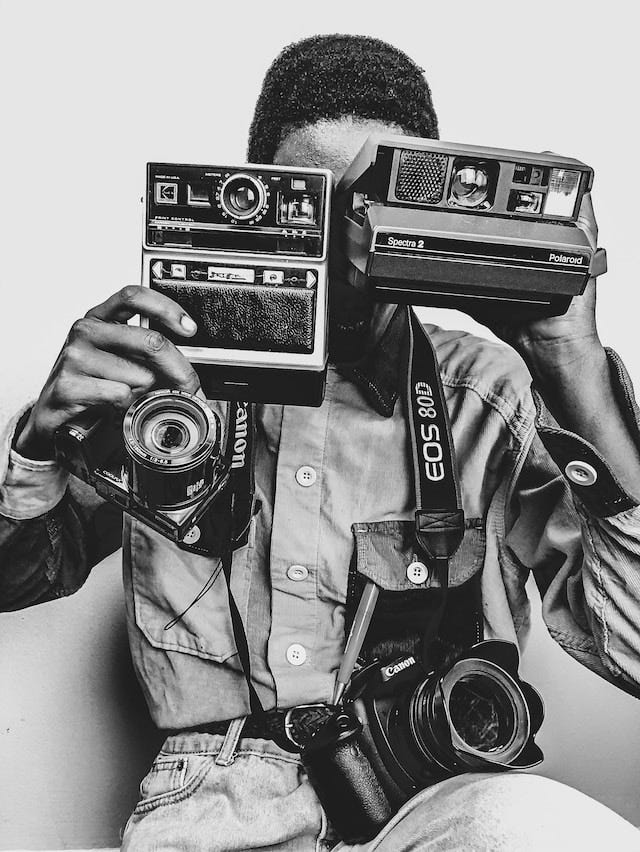Art and Mental Health Interview with Alex of Loreteller
"Everything is: design | narrative | storytelling | experience | spirituality"
I am excited to have an interview for you today with Alex of Loreteller. Alex recently shared a guest post from me as part of The Artist’s Mind virtual book tour so be sure to head over there and check that out. But first, enjoy our conversation about how design and user research relate to writing and creativity, how childhood trauma can be reframed through narrative therapy in order to break generational cycles, and how psychology can show up creatively in fictional characters.
Loreteller is such a great name ... what's the story behind coming up with that and why is it a good fit?
Firstly, you are free to call me Alex! Loreteller is a straightforward name on the surface: the teller of lore. But, to me, ‘lore’ is the hidden truth of things. In my work I want to share the hidden truth of many things from many lenses. Lore, stories, hidden truths and strange connections: I want to share the lore of the stories I’m creating, wisdom I’ve discovered in my journey as a writer, and the connections I’ve made in my experience as a human.
I approach things first from the perspective of fiction: an author constructs a narrative, develops characters, and defines a plot. But from there I make connections to the fictions we tell about ourselves. I have ‘lore’ in my own history: the world-changing events and people that define my own story. Ultimately, I hope to convey to people that story is more than just a fictive conveyance. By examining how you tell stories to an audience, you can examine how you tell stories to yourself about yourself.
But also, loreteller.com was available, and it’s easy to remember!
Storytelling is such a key part of culture, and you describe that so well.
I've read a lot of work and research about the relationship between writing and creativity but you add a third component - design and user research - that I don't usually see. Can you share how that ties in with writing, creativity, and also mental health?
I use the language of Design and UX because I come from a corporate marketing background, where you’re forced to find very concrete ways to speak about things that are ultimately ephemeral.
At their core, writing, creativity, design, and UX all share the common goal of communicating ideas through experiences. Just as Everything Is Story and Everyone Is A Storyteller, Everything Is Design and Everyone Is A Designer.
The narrative form is a fundamental part of human cognition. It's how we make sense of the world, processing information by connecting events in a cause-and-effect sequence. We are constantly creating narratives in our minds, whether we're interpreting actions of others, envisioning future scenarios, or recalling past experiences. In a similar way, design is not just branding and logos: anytime you arrange something with thoughtful intention for someone else to perceive, you are a designer. A tweet, a bedroom, your outfit for the day: that’s design.
More importantly, Design and UX are really just stand-ins for what we are really talking about: Purpose and Empathy. In the context of writing and creativity, ‘design’ means creating a story with purpose, and ‘user experience/research’ means having empathy for your audience. These are mindsets that are beneficial, and by looking at the art of constructing narrative through these lenses we can become better storytellers.
Thank you for sharing that lens. As someone who learns and expresses primarily through words, rather than visually, I don’t think I’ve ever really thought of design that way. It makes a lot of sense.
What, if anything, would you like to share about your own mental health journey?
I’m an open book when it comes to my journey with mental health, and I plan to write more about that in the next year. For now though, I’ll try to be brief and reference minimal triggers.
As a child, I taught myself to read when I was three, and entered kindergarten reading at a 13 year old level. I was your typical precocious and “gifted” child, burdened with an endless stream of incredulous adults who told me that my entire identity was being “smart”. However, my development was soon stunted by emotional and social whiplash.
They moved me from kindergarten to first grade, and I spent half the day in second grade classes. My mother married, and had six more children. She pulled us out of school due to fundamentalist fears of demonic influence, and homeschooled us. The end result of this was that for my formative years, I was secluded at home, with no social interaction, with an abusive drunk for a father and a mother who closed her eyes to everything. I escaped into stories. I devoured everything I could at the library, spending countless hours lost in a book.
I entered public high school with the social deftness of a 6 year old, and struggled to connect with my peers. I entered college with CPTSD, acute OCD and anxiety. It’s been 15 years since I moved out, and since then I’ve been working towards healing my view of myself, healing my view of the world, and ensuring that I break every cycle from previous generations.
A core pattern I am working on is reframing my view of myself away from “superhero”. In the past I have presented myself as someone who is endlessly capable of taking on burdens, who doesn’t need rest, and will always put his own needs last. My coping strategy for this was rapid dissociation from my own needs. Through therapy, I am working on this!
Our stories are different but there’s a lot that resonates, as I was also a precocious child who took on more than I realistically could for a time there. (I finished college in 2.5 years while also doing an internship at Child Protective Services, working as a volunteer youth mentor and raising foster children in my home.) I’m glad that we’re both learning a different way.
For you, what has been the most challenging stressor or "symptom" (defined however feels right to you) and in what ways has it impacted your creative work?
The most challenging obstacle in doing creative work for me has been my penchant for self-shame. When I begin a project or pursuit that I am excited about, my mind tends to quickly twist it into “if you were really good at this, this would help you take care of more people”, or “by working on this you’re ignoring dozens of people who you should be serving.”
Ah, that’s a tough one to work with. <3
You describe an experience of burnout that led to your decision to move more wholly into authentic, creative work, which is something that's been true for me in recent years and I see it among many others as well.
For me, it felt like we hit a fever pitch of full-time writers being asked to be machines (churn out content, promote the content, etc.) and we collectively couldn't keep it up. Does that resonate? Is it relevant to your experience at all? More generally, how did leading up to and being in burnout affect you creatively and how has the experience been coming out of that time?
That definitely does resonate. Aside from the more general ebbs and flows of creative energy, I’ve experienced two periods of extreme burnout in my life. The first was at 17, right as I moved away from home and entered college. The second was at 31, after leading a company that gained more public exposure than I thought possible. In both situations, I was leaving a situation where I was living 100% for other people, and not myself. Every moment I was awake was devoted to spinning 100 plates and giving every piece of myself to try to keep other people happy. As I left those situations, I crashed. The parallels of the second instance to the first was fertile ground for therapeutic intervention and an examination of my past, and my view of my own worth.
How did you come to your interest in narrative psychology (as opposed to other psychology approaches)? What is the relationship of that to storytelling more broadly, which seems to be a key part of your creative career path?
Narrative psychology has been a deeply useful lens for me, as it deals with how the human mind leverages stories to construct meaning. Understanding how the human mind naturally engages with narrative helps me as a writer tell better stories, and understanding how stories are constructed helps me engage with my own past.
In your own creative writing, how does your personal psychological experience in the world inform the way that you build out your characters?
My approach to characters is certainly informed by my own experiences. My whole life has been underpinned by the idea that people can change dramatically and for the better. The single hope I held onto in my childhood was that one day my parents would change who they are. They didn’t, but it was that hope that meant everything to me. I have done so much interior work trying to understand how change works and how to effect positive, lasting change in myself. When it comes to my characters, I tend to begin with them stuck in a frame of reference that they are comfortable with - perhaps even addicted to. Through trials and obstacles, I bring them to a place of enlightenment, where they see beyond the constructs of their prior world.
Writing that change in your characters sounds very therapeutic.
You share a lot of great tools/models like the Emotion Tapestry. What is the number one tool from psychology, philosophy or design that you find helpful for your own creative writing?
For tools/models, if I had to pick one it would be Ikigai.
“Ikigai is a Japanese concept that means your ‘reason for being.’ ‘Iki’ in Japanese means ‘life,’ and ‘gai’ describes value or worth. Your ikigai is your life purpose or your bliss. It’s what brings you joy and inspires you to get out of bed every day.”
For ideas, here are some I return to time and time again to inform my work thematically. I’ll leave them here for you to noodle on, with no disclaimers for their truth value or usefulness!
- Everything is: design | narrative | storytelling | experience | spirituality
- Our map of reality is not reality itself.
- Meaning is created through the interaction of meaningless elements.
- Love is the greatest good, and fear is its nemesis.
- Choosing hope needs no justification.
- Beliefs are signposts pointing toward Truth, not Truth itself.
Such powerful stuff for us to mull over. Thank you!
Now that you've shared all of that with us, what is something you think might surprise us to learn about you?
I collect 3 things: board games, sunglasses, and Hawaiian shirts.
Make sure that you visit Loreteller on Substack!
Loreteller has 50K followers on Tiktok, so follow there if you’re a TikTok fan!
But he is working on developing more Youtube content and hopes to make that his primary video platform: https://www.youtube.com/@loretellerwrites.
If you read this far, perhaps you liked the work. The work does take work. It only continues with support, so please consider subscribing. My annual rate starts at $10 per year.







Fantastic interview! I am learning so much during your month of blog visits.
Alex had a childhood very much like mine with similar mental health issues.
This post is so conversational that I felt like I was in a room with the two of you. Naturally I was “accidentally” listening and trying not to butt in.
Thanks for letting me share part of my story today! It was excellent chatting with you!